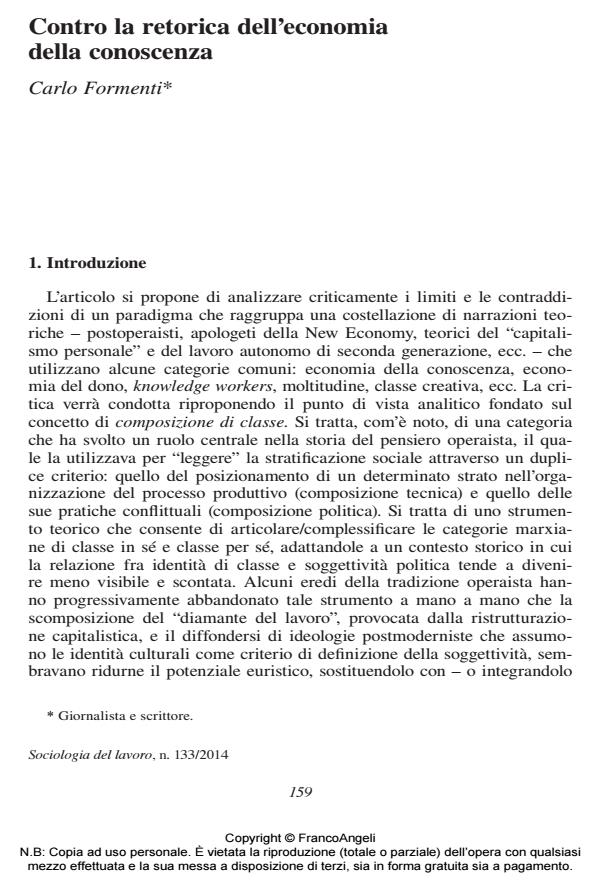Against the rhetoric of the knowledge economy
Journal title SOCIOLOGIA DEL LAVORO
Author/s Carlo Formenti
Publishing Year 2014 Issue 2014/133
Language Italian Pages 12 P. 159-170 File size 574 KB
DOI 10.3280/SL2014-133011
DOI is like a bar code for intellectual property: to have more infomation
click here
Below, you can see the article first page
If you want to buy this article in PDF format, you can do it, following the instructions to buy download credits

FrancoAngeli is member of Publishers International Linking Association, Inc (PILA), a not-for-profit association which run the CrossRef service enabling links to and from online scholarly content.
The article aims to critically analyze the limits and contradictions of a paradigm that holds together a constellation of theoretical narratives – post-workerism, apologists for the New Economy, theorists of personal capitalism and the Second generation of self-employment, etc. These different approaches use some common categories: knowledge-based economy, the gift economy, knowledge workers, multitude, creative class, and so on. The critique will be conducted proposing the analytical point of view based on the concept of class composition. It is, of course, a category that has played a key role in the history of workerist thought, which used it to "read" the social stratification through two criteria: the positioning of a given layer in the organization of production process (technical composition) and its conflicting practices (political composition). It is a theoretical tool that allows to articulate the Marxian categories of class in itself and class for itself, adapting them to a historical context in which the relationship between class identity and political subjectivity tends to become less visible and less obvious.
Keywords: Postworkerism, class, class composition, knowledge workers, selfemployment, New economy
- Il luddista metafisico Onofrio Romano, in Quaderni di Sociologia /2017 pp.67
DOI: 10.4000/qds.1660
Carlo Formenti, Contro la retorica dell’economia della conoscenza in "SOCIOLOGIA DEL LAVORO " 133/2014, pp 159-170, DOI: 10.3280/SL2014-133011